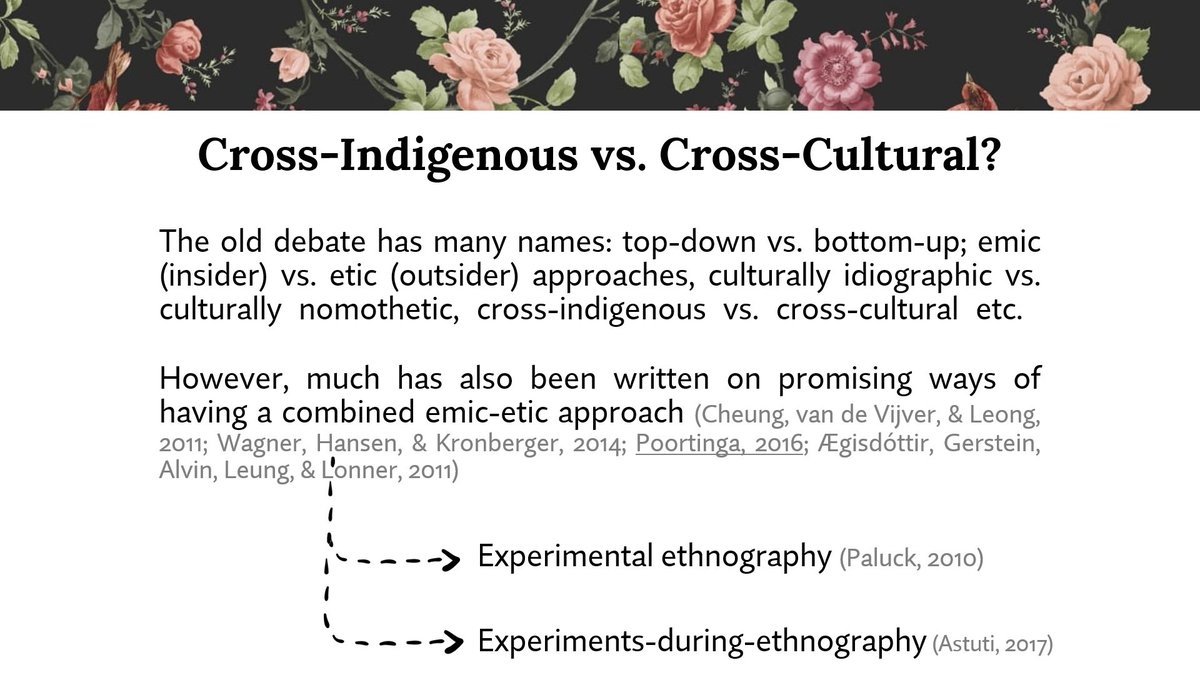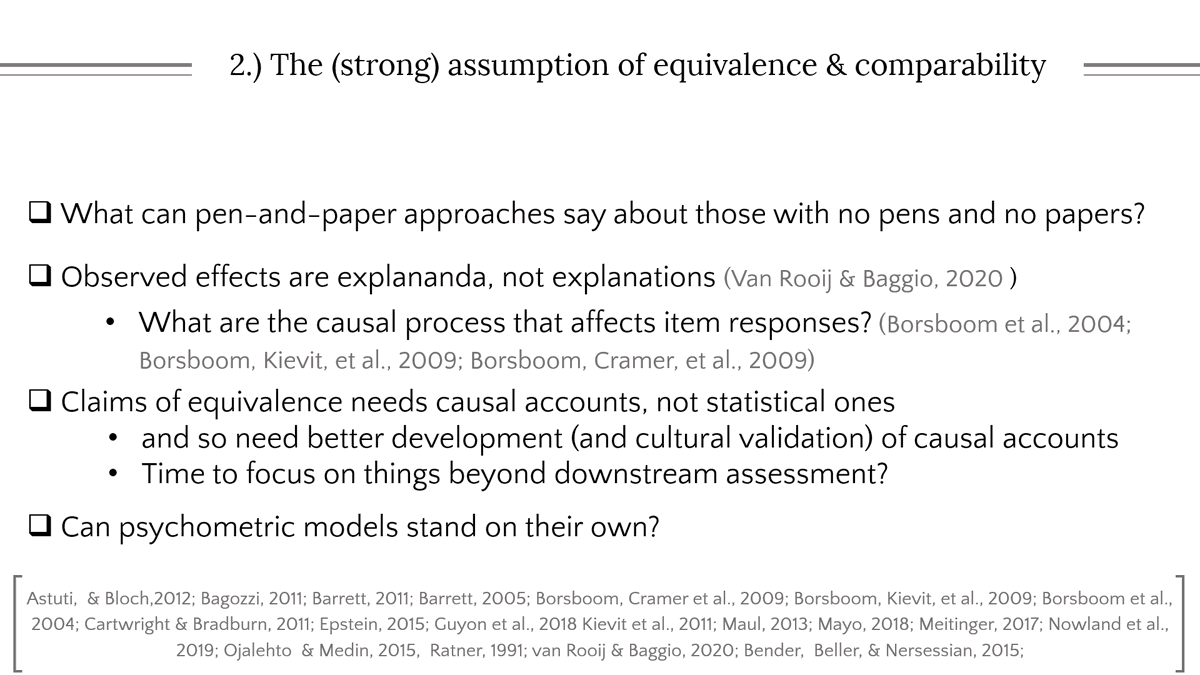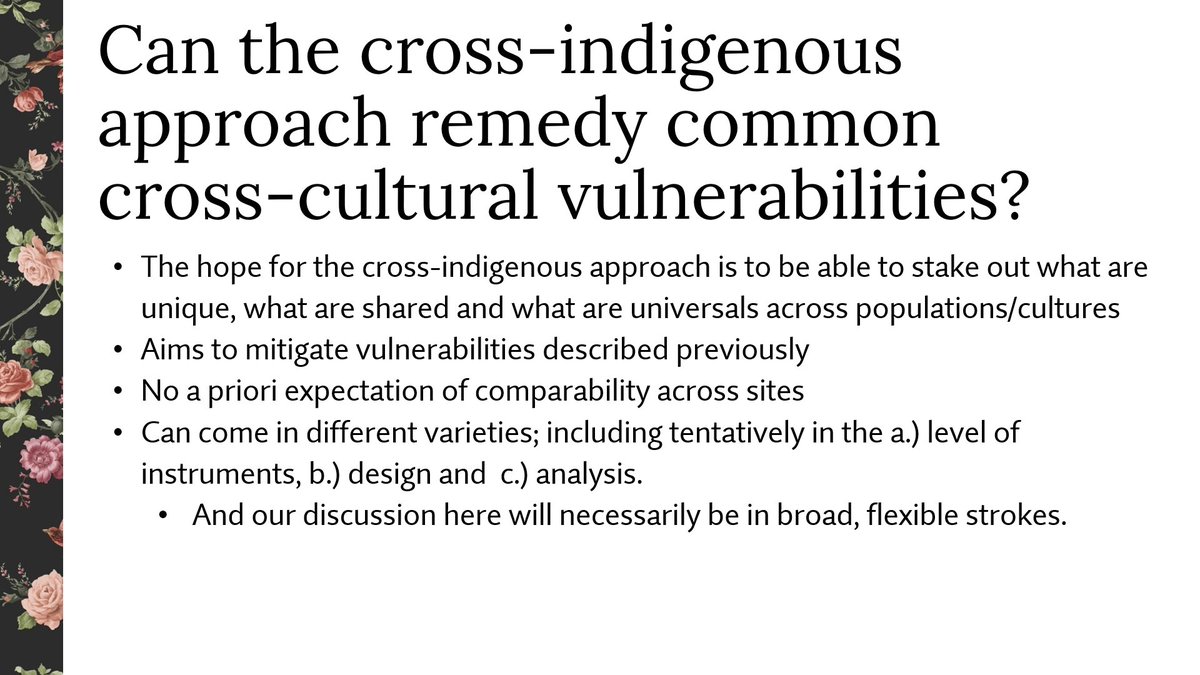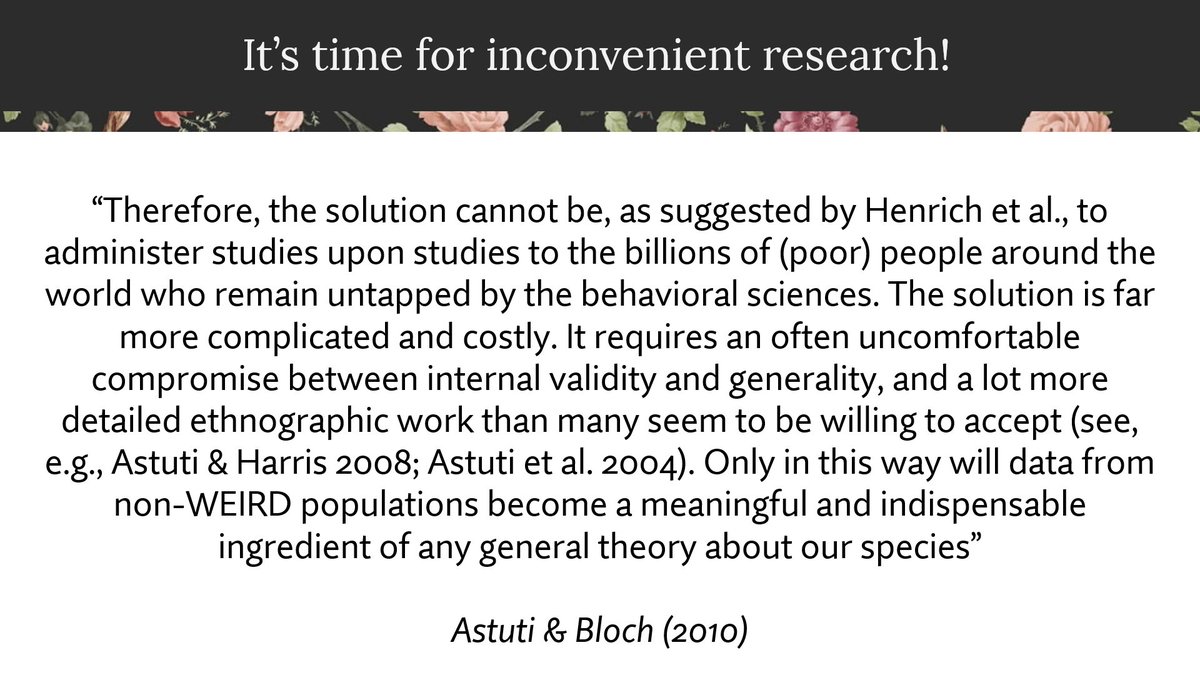Making a thread of my talk on the PSA Conference, "Rethinking multi-site studies: Can the cross-indigenous approach remedy common cross-cultural vulnerabilities?" Video here: https://videos.files.wordpress.com/dfYdMDUb/sept-8-3a_dvd.mp4 (1/15)
here: https://videos.files.wordpress.com/dfYdMDUb/sept-8-3a_dvd.mp4 (1/15)
 here: https://videos.files.wordpress.com/dfYdMDUb/sept-8-3a_dvd.mp4 (1/15)
here: https://videos.files.wordpress.com/dfYdMDUb/sept-8-3a_dvd.mp4 (1/15)
Method reformers & advocates of sampling non-WEIRD populations largely know & rely on cross-cultural approaches: standard tools & stimuli propagated to diff groups to test for generality. But there is another way to rethink multi-site studies! (2/15)
We know we need participant diversity for generalizable psych knowledge. But what does this entail? First some stories (watch to hear about adventures & realities in the field, how some populations think of something as 'simple' time keeping, & living in sea shanties) (3/15)
to hear about adventures & realities in the field, how some populations think of something as 'simple' time keeping, & living in sea shanties) (3/15)
 to hear about adventures & realities in the field, how some populations think of something as 'simple' time keeping, & living in sea shanties) (3/15)
to hear about adventures & realities in the field, how some populations think of something as 'simple' time keeping, & living in sea shanties) (3/15)
E.g. (Feliciano, 1965):
Interviewer: “What time do you turn on your radio in the morning?”
Participant: “When the cocks crow for the second time at dawn”
I: “When did you last see a movie in town?”
P: “That time when the eldest daughter of the barrio captain got married”
Interviewer: “What time do you turn on your radio in the morning?”
Participant: “When the cocks crow for the second time at dawn”
I: “When did you last see a movie in town?”
P: “That time when the eldest daughter of the barrio captain got married”
These stories reflect the contexts in which indigenous psychology was developed - a tradition across many developing nations (Philippines, India, Arab region etc.) to anchor psych on orientation and experience of culture bearers (5/15)
Which liberally use qualitative & ethnographic approaches that meet participants where they are at; and to observe behaviors on their "natural" settings. But how to get from here to generalizable psych knowledge? While (6/15)
The cross-cultural enterprise is to “test the generality of existing [theories] by comparing the responses of different cultural groups on standardized measures of psychological processes” (Ellis & Stam, 2015) (7/15)
The cross-indigenous enterprise is to converge (or fail to converge) on universals through multiple independent explorations of psych processes (& phenomena & mechanisms) among source cultures. It is a largely bottom-up procedure (8/15)
For cross-cultural psych, culture is treated as an external variable that causes variability in behavior. For cross-indigenous psych, culture is treated co-constitutive of the individual (i.e., in some way “within” the individual) (9/15)
There are some ways to combine the two (e.g. @betsylevyp's experimental ethnography, experiments-during-ethnography etc.) but first why make the distinction? (10/15)
1.) cross-cultural psych is likely/vulnerable to putting WEIRD situations to non-WEIRD populations. Ex: Ekman emotion studies of the Fore people. When (translated) emotion words are presented, they get "correct" responses on matching emotion terms with facial expressions (11/15)
However (as @LFeldmanBarrett reviews), when the task is to freely label pictures of expressions, "correct" response plummets. (WEIRD) instruments, stimuli & experiments bake in their assumption to the data produced and the data we eventually analysis (12/15)
2.) cross-cultural psych has the strong assumption of equivalence and comparability. This is whole different large thread, but watch  for thoughts on psychometrics and culture (and what pen-and-paper approaches can say about those with no pens & no papers)
for thoughts on psychometrics and culture (and what pen-and-paper approaches can say about those with no pens & no papers)
 for thoughts on psychometrics and culture (and what pen-and-paper approaches can say about those with no pens & no papers)
for thoughts on psychometrics and culture (and what pen-and-paper approaches can say about those with no pens & no papers)
3.) Once the data are in, and analyzed, it's often difficult to detect these "errors" and vulnerabilities and we are likely to have a much more flatter view than if we had a whole different approach in the first place. (14/15)
Can the cross-indigenous approach mitigate these vulnerabilities? Watch  as we sketch out various pathways and possibilities! Including in the development of instruments, data gathering, analysis and general principles (15/15)
as we sketch out various pathways and possibilities! Including in the development of instruments, data gathering, analysis and general principles (15/15)
 as we sketch out various pathways and possibilities! Including in the development of instruments, data gathering, analysis and general principles (15/15)
as we sketch out various pathways and possibilities! Including in the development of instruments, data gathering, analysis and general principles (15/15)
Also the actual main point of developing this talk/hackathon was so I can have a presentation where the motif fits with my outfit. Unfortunately I am a small little box in the video, so here's a photo in our messy zoom corner my sibling took minutes before I went live
Also, check out other exciting presentations, hackathons and unconferences in the #PSACON2020 here!: https://psysciacc.org/psacon2020-videos/
To get started, Patrick lists some of his recommended here: https://twitter.com/psforscher/status/1312844046235324419
but work through all as it is

To get started, Patrick lists some of his recommended here: https://twitter.com/psforscher/status/1312844046235324419
but work through all as it is



 Read on Twitter
Read on Twitter
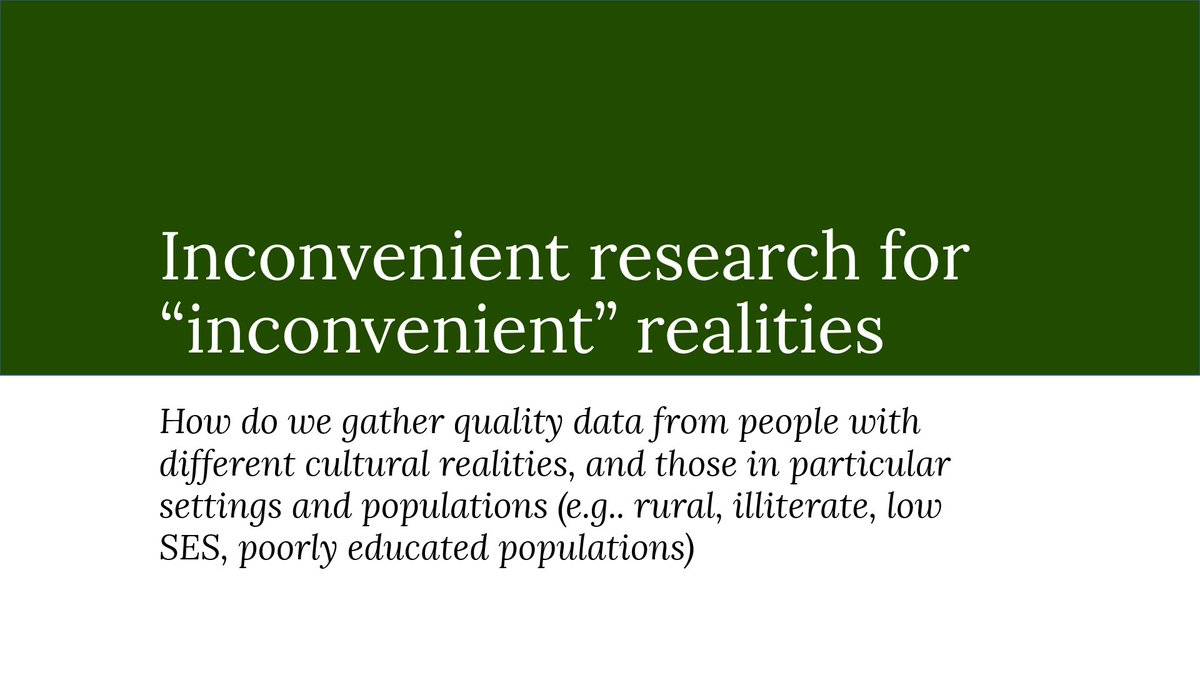
![The cross-cultural enterprise is to “test the generality of existing [theories] by comparing the responses of different cultural groups on standardized measures of psychological processes” (Ellis & Stam, 2015) (7/15) The cross-cultural enterprise is to “test the generality of existing [theories] by comparing the responses of different cultural groups on standardized measures of psychological processes” (Ellis & Stam, 2015) (7/15)](https://pbs.twimg.com/media/ElqazU9UcAAWaWj.jpg)

